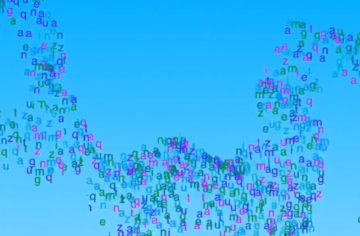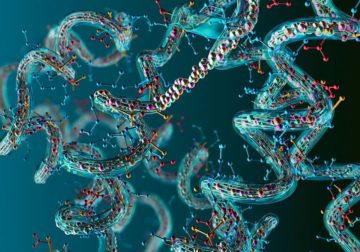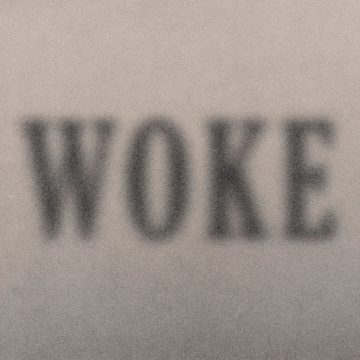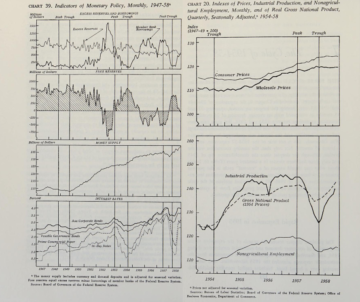by Tim Sommers

“Cleave,” “buckle,” and “dust” are contranyms. They are their own opposites. To dust means to remove, or sprinkle, with dust. To buckle means to collapse or secure. To cleave means both to divide and to stick to tenaciously.
In that spirit, an astro-turf Federalist Society group, opposing affirmative action and pro-active diversity in college admissions, calls itself “Students for Fair Admissions.” The Supreme Court is on the brink of using two upcoming cases brought by Students for Fair Admissions – SFA v Harvard and SFA v the University of North Carolina – to end the last vestiges of any attempts to address discrimination in the college admissions process.
One of the most widely-quoted slogans in Supreme Court history – right up there with ‘You shouldn’t shout fire in a crowded theatre’ and ‘I can’t define obscenity, but I know it when I see it’ – is “The way to stop discrimination on the basis of race is to stop discriminating on the basis of race.”
This approach to equal protection and fair equality of opportunity suggests that the way to address racial discrimination is to not see race, to be, metaphorically at least, color-blind. This is called the “categorization” approach to jurisprudence about race and it echoes the ‘Don’t say gay’ law in DeSantis’ Florida. It’s the ‘Don’t say race’ approach. (Also, the ‘Don’t say sex,’ but here I’ll stick with race, though I would be happy to discuss sex and other protected categories in comments.) Can we solve racism by being blind to race? Well, can we end discrimination against people with mobility challenges by not seeing wheelchairs? Read more »

 When we speak about identity, we usually have in mind the various social categories we occupy—gender categories, nationality, or racial categories being the most prominent. But none of these general characteristics really define us as individuals. Each of us falls into various categories but so does everyone else. To say I’m a straight white male puts me in a bucket with millions of others. To add my nationality and profession only narrows it down a bit.
When we speak about identity, we usually have in mind the various social categories we occupy—gender categories, nationality, or racial categories being the most prominent. But none of these general characteristics really define us as individuals. Each of us falls into various categories but so does everyone else. To say I’m a straight white male puts me in a bucket with millions of others. To add my nationality and profession only narrows it down a bit.
 There are two possible attitudes towards Scripture. One is to regard it as the direct and infallible word of God. This leads to certain problems. The other one, equally compatible with devotion, is to regard it as the recorded writings of men (it almost always is men), however inspired, writing at a specific time and place and constrained by the knowledge and concerns of that time. This invites deeper study of what was at stake for the writers, the unravelling of different narrative strands and voices, and discussion of whatever message the Scriptures may have for our own times. I expect that most readers here will adopt the second approach, while those who adopt the first are not to be dissuaded by mere rational argument, so why am I even discussing it?
There are two possible attitudes towards Scripture. One is to regard it as the direct and infallible word of God. This leads to certain problems. The other one, equally compatible with devotion, is to regard it as the recorded writings of men (it almost always is men), however inspired, writing at a specific time and place and constrained by the knowledge and concerns of that time. This invites deeper study of what was at stake for the writers, the unravelling of different narrative strands and voices, and discussion of whatever message the Scriptures may have for our own times. I expect that most readers here will adopt the second approach, while those who adopt the first are not to be dissuaded by mere rational argument, so why am I even discussing it?
 English may have become universal, but not everyone believes it is a gift. In fact, many hold diametrically opposite views. In an article in The Guardian in 2018, the journalist Jacob Mikanowski described English as a ‘behemoth, bully, loudmouth, thief’, highlighting that the dominance of English threatens local cultures and languages. Due to the ways in which English continues to gain ground worldwide, many languages are becoming
English may have become universal, but not everyone believes it is a gift. In fact, many hold diametrically opposite views. In an article in The Guardian in 2018, the journalist Jacob Mikanowski described English as a ‘behemoth, bully, loudmouth, thief’, highlighting that the dominance of English threatens local cultures and languages. Due to the ways in which English continues to gain ground worldwide, many languages are becoming  Recent investigations like the one Dyer worked on have revealed that LLMs can produce hundreds of “emergent” abilities — tasks that big models can complete that smaller models can’t, many of which seem to have little to do with analyzing text. They range from multiplication to generating executable computer code to, apparently, decoding movies based on emojis. New analyses suggest that for some tasks and some models, there’s a threshold of complexity beyond which the functionality of the model skyrockets. (They also suggest a dark flip side: As they increase in complexity, some models reveal new biases and inaccuracies in their responses.)
Recent investigations like the one Dyer worked on have revealed that LLMs can produce hundreds of “emergent” abilities — tasks that big models can complete that smaller models can’t, many of which seem to have little to do with analyzing text. They range from multiplication to generating executable computer code to, apparently, decoding movies based on emojis. New analyses suggest that for some tasks and some models, there’s a threshold of complexity beyond which the functionality of the model skyrockets. (They also suggest a dark flip side: As they increase in complexity, some models reveal new biases and inaccuracies in their responses.) In a recent Substack post, free-range social critic Freddie deBoer
In a recent Substack post, free-range social critic Freddie deBoer  The first precept of survivors’ justice is the desire for community acknowledgment that a wrong has been done. This makes intuitive sense. If secrecy and denial are the tyrant’s first line of defense, then public truth telling must be the first act of a survivor’s resistance, and recognizing the survivor’s claim to justice must be the moral community’s first act of solidarity.
The first precept of survivors’ justice is the desire for community acknowledgment that a wrong has been done. This makes intuitive sense. If secrecy and denial are the tyrant’s first line of defense, then public truth telling must be the first act of a survivor’s resistance, and recognizing the survivor’s claim to justice must be the moral community’s first act of solidarity. A
A This week the conservative writer Bethany Mandel had the kind of moment that can happen to anyone who talks in public for a living: While promoting a new book critiquing progressivism, she was asked to define the term “woke” by an interviewer — a reasonable question, but one that made her brain freeze and her words stumble. The viral
This week the conservative writer Bethany Mandel had the kind of moment that can happen to anyone who talks in public for a living: While promoting a new book critiquing progressivism, she was asked to define the term “woke” by an interviewer — a reasonable question, but one that made her brain freeze and her words stumble. The viral  Gardiner Means in Phenomenal World:
Gardiner Means in Phenomenal World: Pranab Bardhan in Boston Review:
Pranab Bardhan in Boston Review: Susan Neiman in Unherd:
Susan Neiman in Unherd: Malcom Kyeyune in Compact Magazine:
Malcom Kyeyune in Compact Magazine: